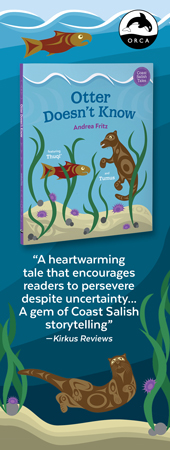Balm in Gilead by Lanford Wilson
July 04th, 2013
Balm in Gilead by Lanford Wilson
Studio 58, March 21-April 7
It was bold thing for a playwright to do in the early 1960s, to hang out in the slums of New York City, eavesdropping on the conversations of prostitutes, pimps and drug addicts, scribbling notes in an all-night cafe, hoping to replicate the language and behavior of the city’s underbelly, the lost and the damned, the dregs of society.
The landmark 1965 play by Lanford Wilson that resulted, Balm in Gilead, as directed by Bob Frazer, is a tribute to that full immersion process, intentionally tossing the audience into the deep end at the outset, with a cacophony of voices and squirming characters. Naomi Snider’s seedy diner set for this theatre-in-the-round production enables patrons to watch—Lanford Wilson-like—as the animated and stoned café patrons banter and bleat and droop and posture to no apparent end.
Transforming a darkened room on the Langara campus into a dingy hangout in Upper Broadway in New York City, using wholesome and articulate students, is a monumental task, even a foolhardy risk, presumptuous, but this spirited ensemble has managed to pull it off. As with the preceding Studio 58 production, it’s the physicality of the performances that leaves the lasting impression.
Two of the (approximately thirty) characters with the least to say—an emaciated hooker shooting up at the outset (Julie Leung) and a jabbering and crazed idiot (Chirag Naik)—combine theatricality and believability with alarming force.
A semblance of a storyline does emerge amid the chaos. An ingénue (Masae Day) arrives in the neighborhood and naively takes a shine to a cavalier, would-be pusher (Chris Cope). After they have slept together, causing the pusher to miss a scheduled sale, the novice drug merchant receives a menacing visit from a thug who represents the potentially lethal wrath of his supplier.
We have started to care. Meanwhile, the odd title is not explained, either in the play or the program. Balm of Gilead is a healing compound mentioned in the Bible. It’s also the title of an Afro-American spiritual.
There is a balm in Gilead
To make the wounded whole;
There is a balm in Gilead
To heal the sin-sick soul.
Some times I feel discouraged,
And think my work’s in vain,
But then the Holy Spirit
Revives my soul again.
From the Jeremiah chapter of the Old Testament, the word Gilead can be interpreted as spiritual medicine to heal Israel or sinners at large. It can also be construed as a testimony. So whose balm is it? The people marooned on the bottom rung of society? Or some sort of necessary balm for society as a whole?
For grounding, director Frazer took his cast to Pain & Wastings to watch and listen. “The main thing we started to see was the continued search for love. Time in and time out we saw examples of love. People helping each other out. Everyone saying hi to each other. Almost every gesture could be interpreted as a search for love.”
For a play that concludes with a stabbing, this could be going a bit too far in terms of blinkered compassion, but unquestionably Frazer has received cooperation and results from his cast. Pint-sized Lili Beaudoin is all too real as a bit player on the street, someone low on the toughness hierarchy, who is nervously and desperately pleading for a fix. The most watchable performance is rendered by Stephanie Izsak as a statuesque hooker, restrained and inwardly proud.
The second act veers into an overlong monologue for the ingénue, babbling to the bored but nonetheless obliging hooker in the wee hours, when the café is almost empty. For about twenty minutes, the ingénue relates the depressing story of getting her marriage nuptials performed at city hall where most couples in the line-up were in advanced stages of pregnancy.
Before she came to New York City, the hooker was a schoolteacher. She knows where the ingénue is headed if she hangs around much longer. So this rambling, interminable, jejune monologue is more of an exercise in her listening—and tolerating—than it is an unveiling of a crucial backstory. Although delivered earnestly, the length of this monologue deflates the crazed, concert atmosphere of the first act.
Before the play draws to its violent climax, the statuesque hooker slides towards the counter and pays the bill for the ingénue without any expectation of thanks, or even being acknowledged. There is so much distraction in the café at that moment, so much circus-like babbling and chafing—like clowns dizzied by despair—that the theatre audience might not even notice this small act of generosity, of dignity, but it’s the counterpoint to the stabbing. Both go for the heart.
— Paul Durras


Leave a Reply